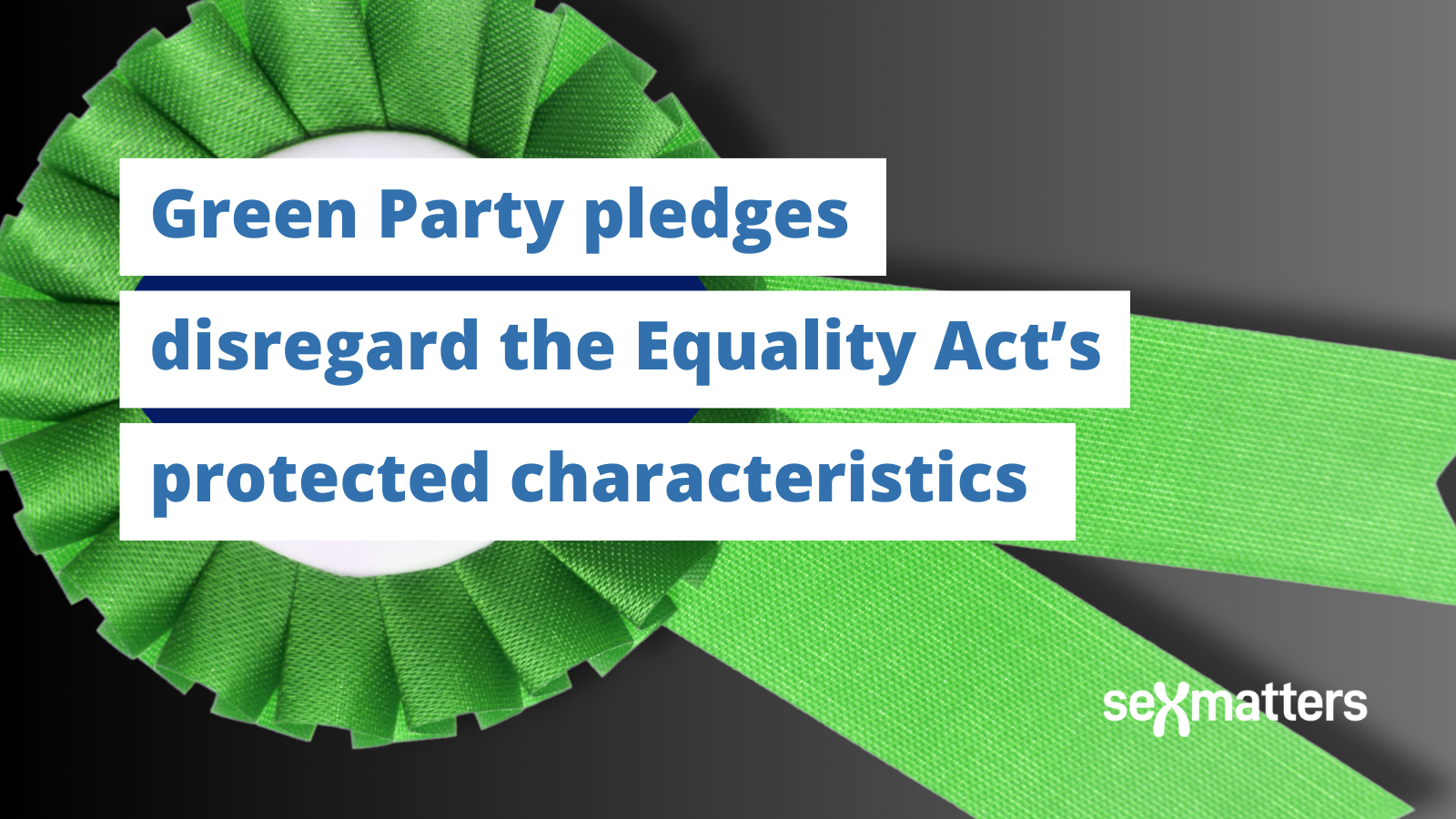This post is part of the Stand up for single-sex services campaign |
The Green Party manifesto – human rights: not for women

The Green Party of England and Wales has published its 2024 general election manifesto: “Real Hope. Real Change: The Green Party’s Manifesto for a Fairer, Greener Country”. A key focus is “defending human rights, democracy and justice”.
The manifesto says that the party is committed to the Universal Declaration of Human Rights, the European Convention on Human Rights and the European Court of Human Rights. But its policy pledges on sex and gender focus only on the interests of the minority of people who identify as transgender or non-binary, and overlook the human rights of everyone else – particularly women.
The manifesto doesn’t mention the Equality Act at all, and its pledges disregard several of the protected characteristics of the act.
In relation to sex, the Green Party supports self-ID, “so that trans and non-binary people could be legally recognised in their chosen gender through self-declaration”. The manifesto is silent on how the Greens would make sure that this is compatible with the human rights of other people (or whether they have considered other people’s rights at all). Relevant rights include the right to freedom of belief and expression (to continue to say that men are male and women are female), and freedom of association (such as the right of lesbians to have their own associations).
The manifesto does not address the impact of self-ID on the operation of the Equality Act in relation to the protected characteristic of sex. This is a huge oversight, since the Green Party’s policy of self-Identification in Scotland was blocked precisely because it would have had adverse effects on the operation of the Equality Act and on protection for women’s rights, such as the ability to provide single-sex services.
Nor does it consider the impact of gender self-ID on safeguarding.
Like the Lib Dems, the Greens pledge to remove what they call the “spousal veto” – a vital legal provision that protects spouses whose partners apply for gender-recognition certificates. Again, it is only the interests of people who identify as trans or non-binary that are considered in such a policy.
The Green Party also ignores the Equality Act’s protections against discrimination on the basis of sexual orientation, instead using the category “LGBTIQA+” (Lesbian, Gay, Bisexual, Trans, Intersex, Queer and Asexual). This conflation of sexual orientation, transgender identity and disorders of sexual development lumps together quite different groups of people. As LGB Alliance says:
“We have long argued that lesbians, gay men and bisexual people have little in common with those who identify as TQ+. We believe that the forced teaming of same-sex attracted and TQ+ people through the use of the aggregate term LGBTQ+ suggests, wrongly, that these distinct groups have common objectives. We don’t, and this umbrella term serves both groups badly.”
Another area where the Green Party diverges from the Equality Act is on the protected characteristic of “religion or belief”. The manifesto pledges to “protect the right to religious expression”. It says nothing about the expression of non-religious beliefs. There is nothing here to suggest the Green Party sees a problem with the suppression of the expression of gender-critical beliefs, such as those of lesbians and gay men who don’t see themselves as part of the “LGBTIQA+ community”.
The manifesto says it “sets out too how fairness can and must run through every part of the change that’s coming.” But the Green Party’s conception of fairness is clearly disconnected from ordinary definitions and legal protections against sex discrimination, sexual-orientation discrimination and belief discrimination.
As part of our #StandUpForSingleSexServices general-election campaign, Sex Matters is asking candidates whether they will make sure no one is hounded out of their job for saying sex is real. The Green Party’s forced teaming of LGB and TQ+, set alongside pledges such as rooting out police officers “who hold views incompatible with serving as a police officer”, raises serious questions about its commitment to protecting the freedom of belief of anyone who disagrees with the view that “trans women are women, trans men are men” in a workplace – or indeed anywhere else.

